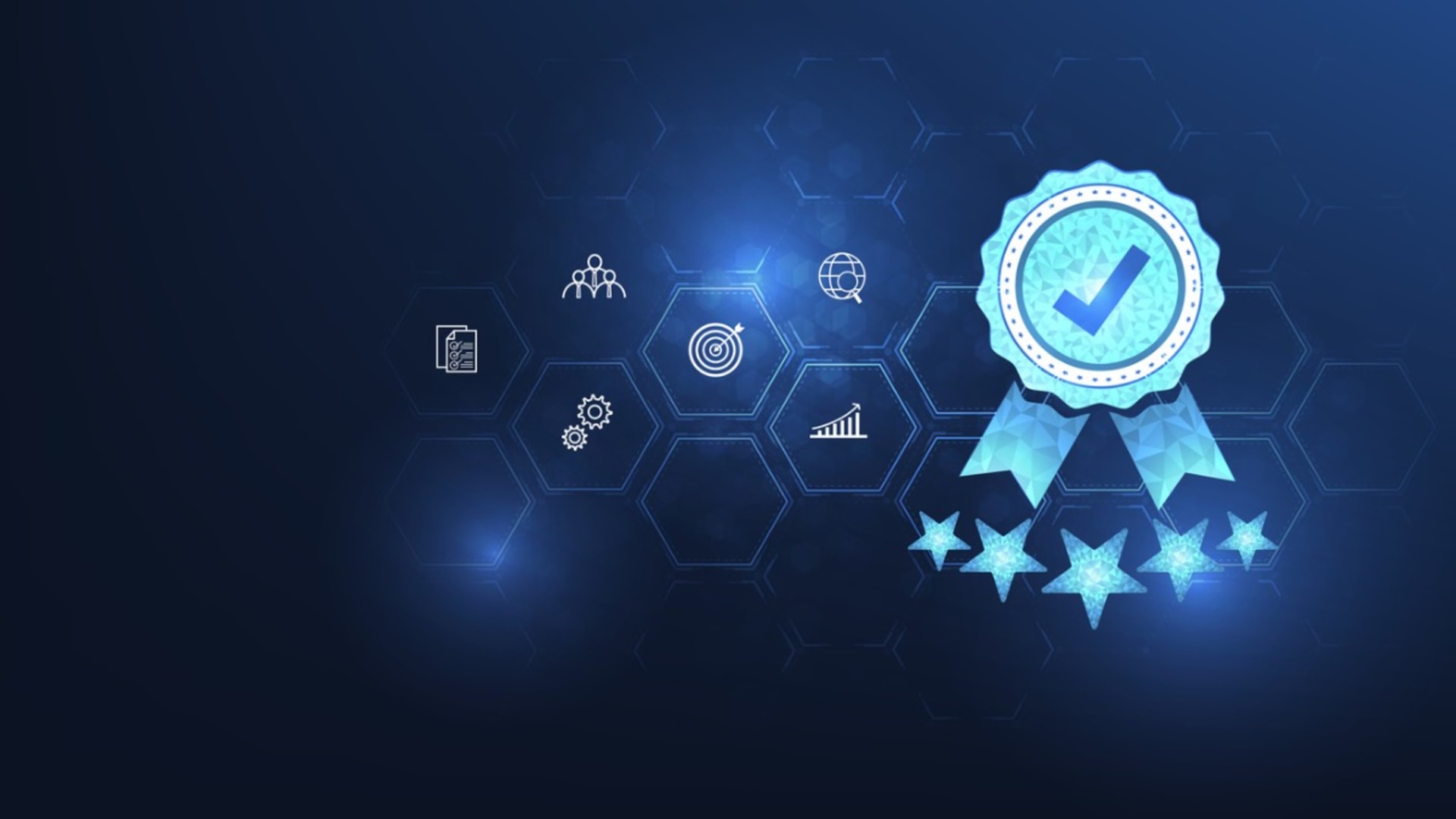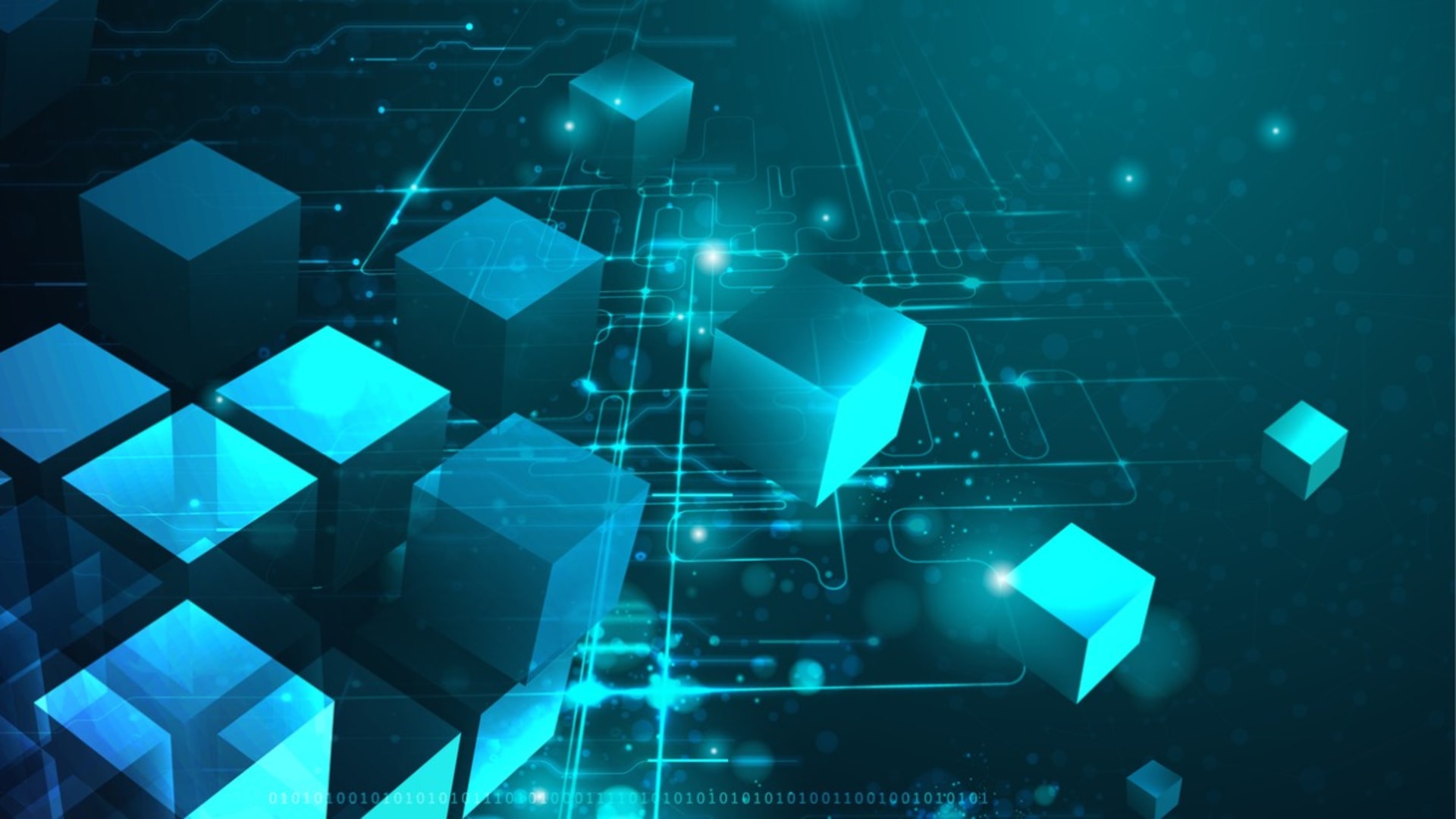- Home
- Technologies
- AI
- Hire AI Developers
Hire AI Developers
Hire vetted AI talent.
Our top 1% of tech talent has already undergone a rigorous vetting process. Get bilingual, nearshore AI developers on your team within 2 weeks.
500+ companies rely on our top 1% tech talent.
No time to find the top talent yourself? Skip the hassle of recruitment.




The Ultimate Guide for Hiring AI Developers
AI drives innovation, revolutionizes operations, automates repetitive tasks, and boosts efficiency. The powerful technology provides deep insights through data analysis, personalizes interactions, and facilitates smarter decision-making.
Yet AI adoption has been uneven across industry sectors and companies of different sizes and maturities. One of the biggest roadblocks? Lack of access to top talent.
Since 2009, we've been identifying the best software developers and tech talent. Today, more than 500 companies across 100+ industry sectors rely on us to deliver high-quality software solutions. With 4,000+ tech professionals around the world, we've learned how to recruit only the highest degree of talent—including in the fast-moving field of AI.
Based on our experience, we created this guide to help you hire AI developers with the right expertise to help your business thrive in a competitive landscape.
Before You Start Hiring
Project or Team Requirements
Finding the right AI developer starts with defining your project or team requirements. Given the vast array of AI niches, use cases, industry sectors, and project sizes, requirements can vary significantly. For example, to develop an AI chatbot, you'd seek out technical skills such as natural language processing, machine learning algorithms, and programming languages like Python. Meanwhile, if you want to use AI for predictive analytics, you should consider skills like data mining and statistical analysis.
Niche Experience in AI
Seeking out niche experience when you hire AI engineers will enhance your team's capabilities and capacity for innovation. Consider expertise in areas such as NLP, computer vision, reinforcement learning, or ethical AI and bias mitigation. These niche skills will vary depending on your requirements and company profile. In any circumstance, however, having an expert on your side will allow you to navigate the complexities of AI and deliver specialized solutions.
Culture Fit
Ensure that candidates align with your company's values, communication style, team dynamics, and work ethic. While technical skills are essential, cultural fit is also important for strong collaboration, productivity, and motivation. If you're hiring remotely, consider location and language compatibility, too. These factors impact communication and overall success.
Adaptability
Given the rapidly evolving nature of the field of artificial intelligence, adaptability is critical for AI developers. They must be able to learn and integrate new algorithms, frameworks, and technologies into complex AI models. Adaptability enables developers to respond to unpredictable challenges, such as changing project requirements and evolving team dynamics. This flexibility helps foster a culture of experimentation and innovation, allowing developers to create more effective AI solutions.
Location and Timezone
Look for developers in regions with overlapping time zones to streamline collaboration and communication. When you share working hours with your team members, you will be able to schedule meetings that are convenient for everyone and manage projects in real-time. Location also often correlates with cultural understanding. An AI developer who understands your cultural nuances and speaks the same language as you will fit in more seamlessly with your team. At the same time, bear in mind that the diverse perspectives of a global team can contribute to greater innovation.
33 Skills Every AI Developer Should Have
AI engineers are in high demand, but finding the right candidate for your team and projects involves more than just assessing technical ability. The best AI developers for your business have a blend of technical and soft skills. This translates into greater productivity and team harmony and drives innovation across the organization.
To help you identify the ideal candidates, here are 33 important hard and soft skills to look for in an AI developer.
Technical Skills to Look for in Your Ideal AI Developer
1. Programming Languages
Experience in languages and libraries designed for AI development allows developers to implement complex algorithms, work with large datasets, and integrate AI capabilities effectively. Programming languages such as Python, Java, R, and C++ are common in AI development. Python, in particular, offers many libraries that support AI and ML projects, such as TensorFlow and PyTorch.
2. Software Development Methodologies and Best Practices
AI developers should have experience with software development methodologies such as Agile and Scrum for seamless collaboration. They should also understand containerization technologies like Docker and continuous integration/continuous deployment (CI/CD) pipelines to integrate AI models into larger projects.
3. Machine Learning and Deep Learning
Machine learning models, including supervised and unsupervised learning, neural networks, and decision trees, are the building blocks for AI systems to learn from data and improve over time. Deep learning techniques and frameworks (e.g.TensorFlow, Keras, and PyTorch) are also important for creating sophisticated models. With this skills, AI developers can ensure they're models can perform complex tasks and solve intricate problems.
4. Statistics and Mathematical Skills
Concepts in mathematics and statistics (e.g. linear algebra, calculus, and probability) are foundational for designing and building AI models of different complexities. They are the basis of the core algorithms commonly used in AI and machine learning. By understanding statistical methods, developers can design more accurate and reliable models, interpret data, and make informed and precise decisions.
5. Data Modeling and Evaluation
Subsets of the data science field, data modeling and evaluation involve building mathematical models that can learn and make decisions or predictions based on data. These processes help developers ensure that the AI systems they create are reliable, accurate, and applicable to real-world scenarios. Developers must be able to evaluate models' performance and fine-tune their solutions, eliminate errors, and optimize performance.
6. Model Deployment and Scaling
Model deployment and scaling is the process of transitioning models from the development phase to production. Having skills in deploying AI models is important for ensuring that the models perform optimally and accurately under different loads and in various conditions. This includes knowledge of model-serving frameworks (e.g. TensorFlow Serving or TorchServe), containerization technologies (e.g. Docker or Kubernetes), and cloud platforms.
7. Natural Language Processing
Natural language processing (NLP) techniques and libraries are critical for roles focused on understanding and generating human language. They're also important for performing tasks like sentiment analysis, language translation, and information extraction. The developer should know libraries such as NLTK or SpaCy, advanced techniques like transformer models (e.g. BERT or GPT), sequence-to-sequence models, and contextual embeddings.
8. Cloud Platforms and Big Data Technologies
Cloud platforms and big data technologies like AWS, Google Cloud, and Azure provide elastic, accessible, and scalable infrastructure for analyzing and processing large datasets. This is a critical process for training and deploying AI models. A deep understanding of these technologies allows developers to handle vast quantities of data, experiment with model architectures, and deploy diverse AI solutions. Cloud platforms also provide machine learning services and tools that help streamline development and deployment processes.
9. Data Preprocessing and Visualization
Cleaning and organizing data (data preprocessing) allows developers to transform raw data into a format suitable for analysis and model training. This involves eliminating errors, handling missing values, normalizing data, and employing techniques such as feature scaling and encoding categorical data. Data visualization—creating graphical representations of data—further enables developers to identify and interpret trends, outliers, and correlations that aren't immediately apparent in raw data. Together, these approaches allow developers to make informed decisions about training and tuning their machine learning models.
10. Reinforcement Learning
Reinforcement learning (RL) is a type of machine learning that allows an agent to learn how to make decisions within a specific environment or context by interacting with it. By receiving feedback (rewards or penalties), the agent gains an understanding of how to achieve its goal. This is an essential skill for developing systems that need to make sequential decisions to achieve goals, including autonomous vehicles, financial trading strategies, and certain games.
11. Knowledge of AI Platforms and APIs
Familiarity with AI platforms such as Google AI Platform, IBM Watson, and Microsoft Azure AI is essential for accelerating development. They provide a robust set of tools for training, deploying, and managing AI models. Experience with pre-built AI services and APIs for speech recognition, language understanding, and computer vision is also important for rapid prototyping or integration into existing apps.
12. Computer Vision
Computer vision knowledge is essential for AI roles that involve visual data interpretation. This skill allows developers to create applications that can interpret the visual world. These apps are applicable across fields like security, healthcare, security, automotive, and retail. For example, in healthcare, it is used for diagnostic imaging. In security, it can support facial recognition systems.
13. Ethics and Legal Knowledge
AI technology has significant implications for privacy, security, and ethics. An understanding of ethical considerations like bias and fairness can help developers make informed decisions about these important concerns when building AI models. Knowledge of laws and regulations like GDPR is also important for compliance and adherence to consumer rights and international standards.
14. Distributed Computing
Proficiency in distributed computing allows AI developers to utilize hardware resources, reduce processing times, and manage workloads efficiently. Developers should understand concepts like parallel processing and platforms like Apache Spark to work with complex algorithms and scale AI solutions.
15. Robotics
Robotics is central to integrating AI with physical systems, enabling the creation of autonomous machines capable of performing real-world tasks. Knowledge of robotics systems (e.g. kinematics and control theory) allows developers to program machines to learn, make decisions, and interact with their environments. There are many practical applications of robotics knowledge, from manufacturing robots to autonomous drones.
16. Signal Processing
With skills in signal processing, developers can analyze, filter, and interpret signals from sensor, audio, and visual data sources. This process enhances applications of AI in several fields, including speech recognition, IoT, and health monitoring.
17. Cybersecurity and AI
Given the vast quantities of sensitive data they grapple with, AI models are subject to adversarial attacks like data poisoning and model evasion. Developers must understand and be able to apply cybersecurity principles such as data protection, secure coding, and encryption techniques. They should also have knowledge of regulatory frameworks governing data security to further protect AI systems.
18. Explainable AI (XAI)
XAI encompasses techniques and models that make AI system decisions understandable to humans. Candidates should have a strong grasp of XAI to build confidence and trust in the AI systems they create. Through Explainable AI concepts, they can articulate the decisions they make that affect compliance, ethical considerations, and error corrections. They can also help stakeholders validate the reliability of AI models and ensure that automated decisions are fair and justifiable.
19. Edge Computing
Knowledge of deploying AI models on edge devices and optimizing them for low-power and low-latency environments is crucial for certain applications, such as IoT apps. In addition to software considerations, developers should understand hardware accelerators like GPUs and TPUs, critical for speeding up AI computations on these devices.
20. Blockchain and AI Integration
Understanding blockchain will allow developers to build a secure and immutable record of AI operations. By integrating blockchain's key features, developers can create systems where AI decisions are logged and verifiable. These are important qualities for applications in areas like finance and healthcare. Combining the strengths of both technologies enhances operational efficiency and improves trust in data integrity and AI decisions.
21. Graph Neural Networks (GNNs)
GNNs extend the capabilities of traditional neural network models by enabling the processing of graph-structured data. With proficiency in GNNS, AI developers can handle problems involving complex relational data. This enhances the scope and overall effectiveness of AI solutions.
22. Explainability and Interpretability Tools
Candidates should have experience in tools and techniques for making AI models more interpretable, such as LIME, SHAP, or integrated gradients. This knowledge is essential for diagnosing model behavior, ensuring fairness, reducing bias, and building trust with stakeholders and users.
23. Generative Models
Generative AI models like ChatGPT are essential in applications such as image and speech synthesis, anomaly detection, and data augmentation. Given the significance of these fast-evolving models, candidates should have skills in developing and deploying models like Generative Adversarial Networks (GANs) and Variational Autoencoders (VAEs).
24. Multimodal AI Systems
Experience in designing AI systems facilitates processing and interpreting data from multiple modalities, such as text, image, and audio, simultaneously. This is increasingly important for developing sophisticated AI solutions.
25. Quantum Machine Learning
Although still an emerging field, quantum machine learning is gaining significance for AI developers. It offers potential advantages in solving complex problems quickly and efficiently through quantum algorithms, which can enhance various machine learning tasks.
26. Cross-lingual and Multilingual NLP
Having expertise in developing natural language processing (NLP) models allows AI experts to create solutions that can understand, interpret, and generate text across diverse languages. This is crucial for developing software that serves a wide range of linguistic communities. It enhances accessibility and enables more effective global communication.
27. Speech Processing
Skills in speech processing, including speech recognition, text-to-speech, and speech-to-text technologies, are valuable for AI developers. They are particularly crucial for roles focused on developing voice-activated systems and interfaces, enhancing user interaction and accessibility.
28. Data Engineering and Pipeline Management
Proficiency in creating and maintaining data pipelines, including data collection, storage, and preprocessing, is crucial for training scalable AI models. Developers should understand data streaming technologies like Apache Kafka and database management systems such as MongoDB. They help ensure data integrity and accessibility.
29. Domain-Specific Knowledge
AI is being applied across a wide range of industry sectors, from healthcare and finance to retail and entertainment. A nuanced understanding of the complexities, challenges, and regulatory requirements within your field helps AI developers design relevant and impactful AI solutions.
Soft Skills to Look for in Your Ideal AI Developer
30. Research
AI is a rapidly evolving field, making research skills crucial for developers who need to keep abreast of the latest findings and best practices. These skills, including data analysis, literature review, and experimental design, equip developers to effectively apply cutting-edge knowledge to solve real-world problems. With a strong research capability, developers can experiment with new techniques and contribute to the advancement and innovation of AI technology.
31. Communication
Communication skills are important for expressing ideas, listening to others, clarifying information, and translating technical concepts for non-technical stakeholders. Clear communication ensures that all audiences involved understand the project's goals, progress, and challenges. It's also essential for maintaining proper documentation of the AI development process for both technical and non-technical stakeholders.
32. Crisis Management
Unforeseen problems, such as data breaches or malfunctioning AI systems, can derail projects. However, developers adept at crisis management play a crucial role in resolving these issues. They are equipped to succinctly explain the problem and its implications and take decisive steps to resolve it. Effective crisis management not only maintains trust and transparency but also minimizes potential damage and disruption.
33. Problem-Solving
At its core, AI development is about solving complex problems. With strong problem-solving skills, developers can devise creative solutions, cope with unexpected challenges, and make reasoned judgments.
13 Questions to Identify Top AI Developers
When interviewing AI developers, it's important to ask questions that first assess the candidates' technical skills and knowledge. Employers will also usually conduct a coding test to further assess specific on-the-job knowledge.
The following set of questions aim to uncover not only the developer's technical knowledge but also their problem-solving abilities, teamwork, communication skills, and adaptability—all crucial traits for success in a collaborative environment.
Here are a few examples of technical interview questions:
1. Explain the difference between supervised, unsupervised, and reinforcement learning.
Supervised learning, unsupervised learning, and reinforcement learning are important concepts in machine learning. Supervised learning involves training a model with labeled data. In this case, the correct output is provided. Unsupervised learning, in contrast, involves unlabeled data. The goal is to find patterns or groupings within the data. Meanwhile, in reinforcement learning, an agent learns to make decisions by initiating actions and receiving feedback from the environment.
2. Describe your experience with deep learning frameworks.
I have used both TensorFlow and PyTorch. I've used TensorFlow for image classification and PyTorch for sequence-to-sequence models in natural language processing tasks.
3. How do you ensure that your AI models are not biased?
To ensure that my AI models are not biased, I evaluate the dataset for representation bias and leverage techniques like stratified sampling to confirm diverse data collection. I also conduct bias and fairness audits with tools like AIF360 throughout the model development process. After deployment, I perform continuous monitoring to identify any emergent biases.
4. How do you select features for your models?
When selecting features for my AI model, I begin with domain knowledge to identify potentially relevant options. Next, I use statistical techniques such as correlation coefficients to evaluate the relationships between the features and the target variable. I also leverage techniques like Principal Component Analysis for dimensionality reduction while preserving important information.
5. How do you handle overfitting in machine learning models?
I use methods like cross-validation and regularization techniques like L1 and L2 regularization to handle overfitting in machine learning models. I also ensure that the model complexity is appropriate for the dataset size and qualities.
6. How do you validate the performance of your AI models?
I use a variety of techniques to validate the performance of my AI models. For example, I leverage cross-validation to assess the model's performance on unseen data. I also examine metrics like precision, recall, and F1 score for classification problems. I always consider factors like the model's interpretability and the impact of its predictions on real-world applications.
7. Explain the concept of "transfer learning."
Transfer learning is the process of using a model previously trained on one task for a second related task. It is especially relevant when there's limited data for the second task.
8. How do you optimize an AI model's performance?
I take several steps to optimize an AI model's performance. First, I use grid search or random search to perform hyperparameter tuning to find the optimal model settings. I may also work with different architectures or algorithms, depending on the nature of the problem. To prevent overfitting, I apply regularization techniques that penalize complex models. I use ensemble methods such as stacking or boosting, combining the strengths of multiple models to boost performance. Finally, I ensure the data is well-prepared and clean, and I use validation techniques like cross-validation to verify the model's effectiveness throughout the optimization process.
9. How do you stay updated with the latest advancements in AI and machine learning?
AI and machine learning are advancing at an unprecedented pace. Candidates should read journals, participate in events, and connect with others in the field in order to stay up to date with the latest news, challenges, and goings-on in AI and ML.
10. Describe a challenging AI project you worked on. How did you address obstacles?
This question gauges the developer's technical expertise and perseverance. The candidate has the opportunity to demonstrate their approach to tackling complex problems, innovating, and facing challenging and complex situations.
11. Discuss a time your AI model did not perform as expected. How did you solve the problem?
This question helps assess the candidate's response to unpredictable situations and problem-solving skills. You'll learn how they deal with challenging scenarios and find solutions
12. Explain a complex concept in AI or machine learning as if you were talking to someone without a technical background.
AI developers must collaborate with diverse team members and stakeholders, including those without technical backgrounds. They should be able to articulate and translate complex AI topics in an approachable and understandable way.
13. How do you balance the need for innovation with the practicalities of implementation and deployment in AI development?
Asking an AI developer candidate this question is important because it evaluates their ability to navigate the challenges of advancing technology. It also ensures that their software solutions are practical and deployable in the real-world.
Frequently Asked Questions
AI developers are software engineers who specialize in creating software and algorithms that allow computers to perform tasks that usually demand human intelligence. They design and develop artificial intelligence models and systems that can learn and make decisions based on data.
When you're seeking AI engineers, look for a strong background in computer science. Candidates should have deep knowledge of machine learning algorithms and frameworks, programming languages like Python, and data modeling techniques. You should also look for experience applying these skills to real-world problems. Soft skills like problem-solving, communication, research, and collaboration are important as well.
Yes, you can hire remote AI Developers. The remote work model is prevalent in the software development field. It offers several benefits, such as access to a global talent pool and diverse skills and experiences. To ensure that you build a strong AI development team, establish clear communication channels, collaboration tools, and expectations. Partnering with an AI development company can also streamline the process of assembling a remote team, ensuring that you have access to top-notch professionals and robust support structures.
To find an experienced AI engineer, start with a compelling and clear AI job description. Use multiple sourcing channels, including referrals, job boards, and job search sites. Ensure you have a thorough vetting process to identify the best-fit candidates for the role and your team. Consider different hiring models, such as outsourcing models or full-time and in-house employment. Particularly, you may want to outsource AI development to access specialized skills and streamline your hiring process.
AI developers are skilled in a wide range of AI technologies, including machine learning, computer vision, and robotics. In contrast, LLM developers focus on large language models (LLMs), specializing in natural language processing and text generation. When you hire LLM developers, it's crucial to specify the particular skills and expertise needed for your project to ensure you find the best candidates.

How Businesses Can Overcome the Software Development Shortage
BairesDev Ranked as one of the Fastest-Growing Companies in the US by Inc. 5000











